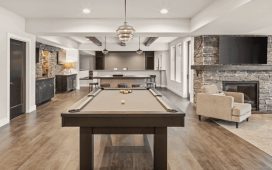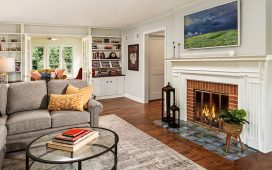Renovating a property in Cumbria can be a smart move. It adds value, improves comfort, and can even cut running costs. It often raises one question – does it increase your council tax?
Understanding Council Tax Bands in Cumbria
Council tax in England is based on valuation bands. These bands reflect what a property was worth on 1 April 1991. Every home is in a band from A to H. The Valuation Office Agency (VOA) makes the decision. The council tax you pay depends on your band and your local council’s charges. Cumbria’s councils include Carlisle City, Allerdale Borough, South Lakeland, Eden District, Copeland, and Barrow-in-Furness.
Will Renovating a Property Trigger a Council Tax Reassessment?
In most cases, council tax bands stay fixed, even if you carry out major renovations. But there are clear situations where the Valuation Office Agency may review the band. Here’s when this might happen:
- You create a new home within a property, such as a self-contained annexe.
- The home is split into separate flats.
- You combine two flats into one.
- You sell the home, and its value has increased substantially due to renovations.
If you renovate and live in the property, your band will likely be the same. If you sell the property, the VOA may reassess and place it in a higher band.
What Kind of Renovations Affect Council Tax?
Some types of renovation work are more likely to cause a reassessment after sale:
- Extensions that add floor space, such as new bedrooms or conservatories.
- Loft conversions that increase the usable living area.
- High-end kitchen or bathroom upgrades raise market value.
- Building a self-contained annexe.
- Big structural changes or full house refurbishments.
Cosmetic changes like repainting, fitting new carpets, or replacing windows won’t affect your council tax.
Empty Property Refurbishment and Council Tax Discounts
If the property is empty while you renovate, you might face full council tax charges. Some councils in Cumbria give discounts for unoccupied properties under renovation. Each district council sets its own rules. In many cases, you’ll pay 100% of the council tax, even if no one is living there. If the property has been empty for over two years, some councils apply a premium, charging up to 200%. Always check with the local council before assuming any discounts apply. Councils in Cumbria have tightened up exemptions in recent years.
Annexes and Council Tax
Building an annexe, whether for relatives, guests, or as a rental, can mean it becomes separately banded. It means a second council tax bill. However, you may qualify for a 50% discount on annexes lived in by family members. If the annexe is empty or used only by those living in the main house, other exemptions may apply. It’s essential to inform the council before work starts.
Selling a Renovated Property
When you sell a fully renovated home, especially one where you make big structural changes, the VOA will often reassess the band. The new buyer may face a higher bill. It doesn’t affect you directly, unless you own multiple properties and develop them for sale.
Link Building Opportunity: Add Anchor Text
Are you looking for reliable professionals for your renovation? See our trusted builders in Cumbria.
Summary
Renovations don’t add to your council tax immediately. But sell the home, or build something new within it, and the band could change. Big structural work, especially extensions or conversions, can trigger a reassessment later. Keep records, check with your local council, and factor council tax into your renovation costs.















